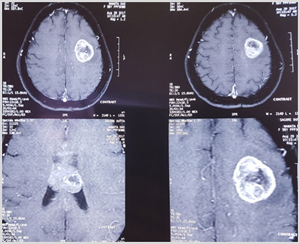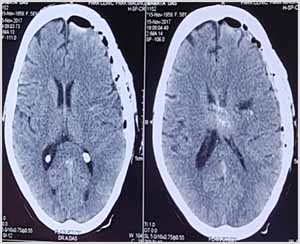
Dr. Amitabha Das
MBBS (Hons), MS (General Surgery, Gold medalist), MCh (Neurosurgery, AIIMS

MBBS (Hons), MS (General Surgery, Gold medalist), MCh (Neurosurgery, AIIMS
BRAIN TUMOUR
What is a brain tumor?
A brain tumor is a collection, or mass, of abnormal cells in your brain. Your skull, which encloses your brain, is very rigid. Any growth inside such a restricted space can cause problems. Brain tumors can be cancerous (malignant) or noncancerous (benign). When benign or malignant tumors grow, they can cause the pressure inside your skull to increase. This can cause brain damage, and it can be life-threatening.
Brain tumors are categorized as primary or secondary. A primary brain tumor originates in your brain. Many primary brain tumors are benign. A secondary brain tumor, also known as a metastatic brain tumor, occurs when cancer cells spread to your brain from another organ, such as your lung or breast.
 2
2
Types of brain tumors
A) Primary Brain Tumors
Primary brain tumors originate in your brain. They can develop from your:
• brain cells
• the membranes that surround your brain, which are called meninges
• nerve cells
• glands
Primary tumors can be benign or cancerous. In adults, the most common types of brain tumors are gliomas and meningiomas.
B) Gliomas
Gliomas are tumors that develop from glial cells. These cells normally:
• support the structure of your central nervous system
• provide nutrition to your central nervous system
• clean cellular waste
• break down dead neurons
Gliomas can develop from different types of glial cells. The types of tumors that begin in glial cells are:
• astrocytic tumors such as astrocytomas, which originate in the cerebrum
• oligodendroglial tumors, which are often found in the frontal temporal lobes
• glioblastomas, which originate in the supportive brain tissue and are the most aggressive type
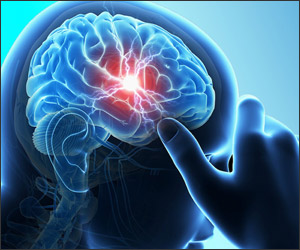
C) Other Primary Brain Tumors
Other primary brain tumors include:
• pituitary tumors, which are usually benign
• pineal gland tumors, which can be benign or malignant
• ependymomas, which are usually benign
• craniopharyngiomas, which occur mostly in children and are benign but can have clinical symptoms like changes in vision and premature puberty
• primary central nervous system (CNS) lymphomas, which are malignant
• primary germ cell tumors of the brain, which can be benign or malignant
• meningiomas, which originate in the meninges
• schwannomas, which originate in cells that produce the protective cover of your nerves (myelin sheath) called Schwann cells
Most meningiomas and schwannomas occur in people between the ages of 40 and 70. Meningiomas are more common in women than men. Schwannomas occur equally in both men and women. These tumors are usually benign, but they can cause complications because of their size and location. Cancerous meningiomas and schwannomas are rare but can be very aggressive.
D) Secondary Brain Tumors
Secondary brain tumors make up the majority of brain cancers. They start in one part of the body and spread, or metastasize, to the brain. The following can metastasize to the brain:
• lung cancer
• breast cancer
• kidney cancer
• skin cancer
Secondary brain tumors are always malignant. Benign tumors don’t spread from one part of your body to another.
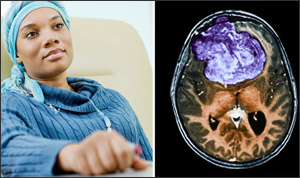 3
3
What are the risk factors for a brain tumor?
Risk factors for brain tumors include:
A) Family History
Only about 5 to 10 percent of all cancers are genetically inherited, or hereditary. It’s rare for a brain tumor to be genetically inherited. Talk to your doctor if several people in your family have been diagnosed with a brain tumor. Your doctor can recommend a genetic counselor for you.
B) Age
Risk for most types of brain tumors increases with age.
C) Race
Brain tumors in general are more common among Caucasians. However, African-American people are more likely to get meningiomas.
D) Chemical Exposure
Being exposed to certain chemicals, such as those you might find in a work environment, can increase your risk for brain cancer. The National Institute for Occupational Safety and Health keeps a list of potential cancer-causing chemicals found in work places.
E) Exposure to Radiation
People who have been exposed to ionizing radiation have an increased risk of brain tumors. You can be exposed to ionizing radiation through high-radiation cancer therapies. You can also be exposed to radiation from nuclear fallout. The nuclear power plant incidents in Fukushima and Chernobyl are examples of how people can be exposed to ionizing radiation.
F) No history of Chicken Pox
According to the American Brain Tumor Association, people with a history of childhood chicken pox have a decreased risk of getting brain tumors.
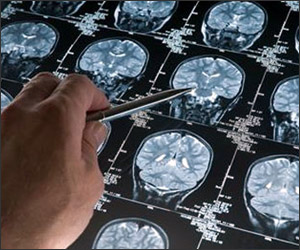 4
4
What are the symptoms of a brain tumor?
Symptoms of brain tumors depend on the location and size of the tumor. Some tumors cause direct damage by invading brain tissue and some tumors cause pressure on the surrounding brain. You’ll have noticeable symptoms when a growing tumor is putting pressure on your brain tissue.
Headaches are a common symptom of a brain tumor. You may experience headaches that:
• are worse in the morning when waking up
• occur while you’re sleeping
• are made worse by coughing, sneezing, or exercise
You may also experience:
• vomiting
• blurred vision or double vision
• confusion
• seizures (especially in adults)
• weakness of a limb or part of the face
• a change in mental functioning
 Other common symptoms include:
Other common symptoms include:
• clumsiness
• memory loss
• confusion
• difficulty writing or reading
• changes in the ability to hear, taste, or smell
• decreased alertness, which may include drowsiness and loss of consciousness
• difficulty swallowing
• dizziness or vertigo
• eye problems, such as drooping eyelids and unequal pupils
• uncontrollable movements
• hand tremors
• loss of balance
• loss of bladder or bowel control
• numbness or tingling on one side of the body
• trouble speaking or understanding what others are saying
• changes in mood, personality, emotions, and behavior
• difficulty walking
• muscle weakness in the face, arm, or leg
 Symptoms of Pituitary Tumors : The following symptoms can occur with pituitary tumors:
Symptoms of Pituitary Tumors : The following symptoms can occur with pituitary tumors:
• nipple discharge, or galactorrhea
• lack of menstruation in women
• development of breast tissue in men, or gynecomastia
• enlargement of the hands and feet
• sensitivity to heat or cold
• increased amounts of body hair, or hirsutism
• low blood pressure
• obesity
• changes in vision, such as blurry vision or tunnel vision
